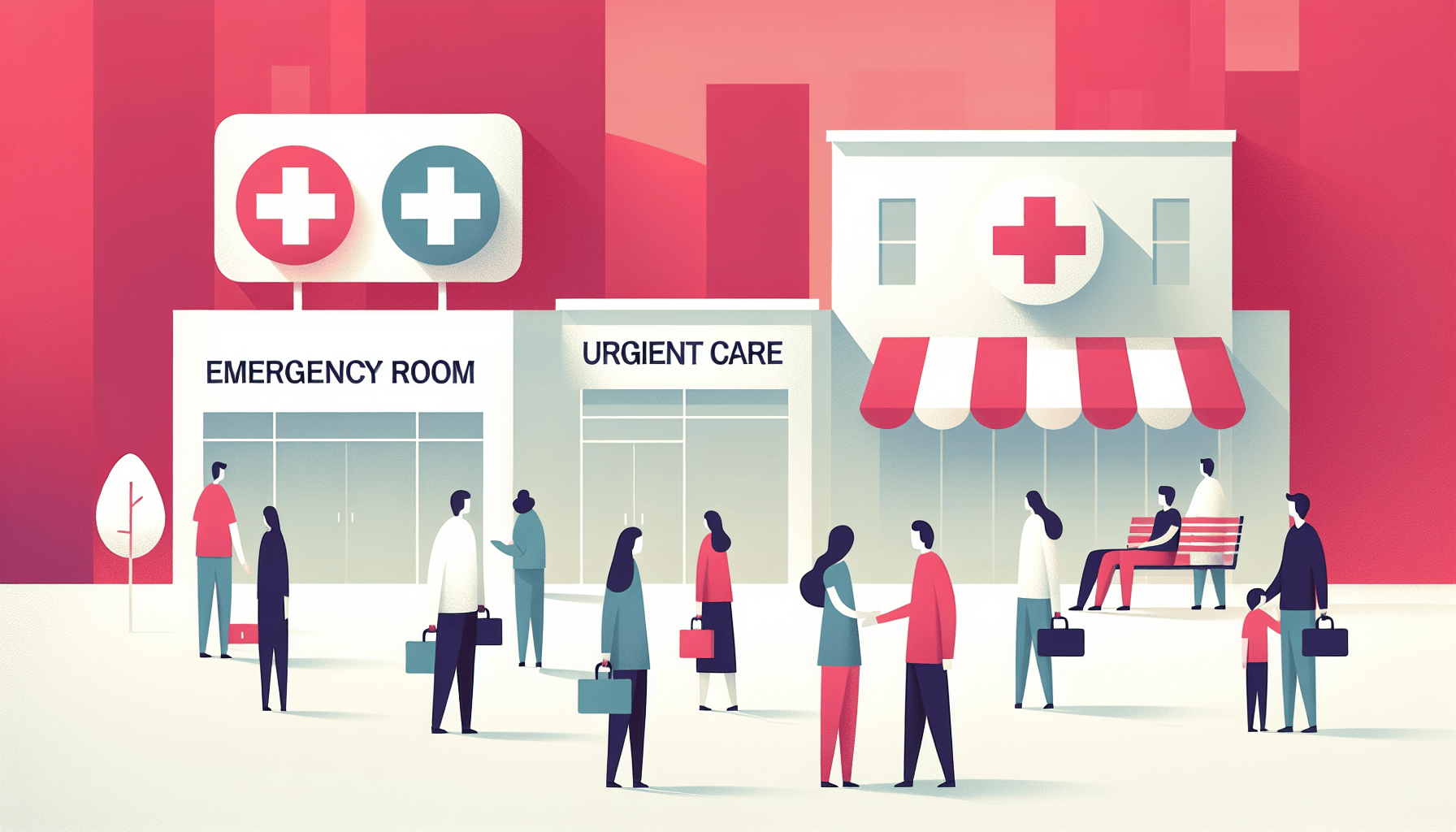When you have a sudden illness or injury, it's important to know where to go for the right medical care. While your primary care doctor is often the best choice for routine health issues, there are times when you need immediate attention and can't wait for an appointment. In these situations, you have three main options: the emergency room, an urgent care center, or a retail clinic.
Emergency Room: For Life-Threatening Conditions
The emergency room (ER) is designed to handle life-threatening conditions and serious injuries. If you experience any of the following symptoms, head to the ER immediately:
Chest pain or difficulty breathing
Severe abdominal pain
Uncontrollable bleeding
Sudden or severe headache
Loss of consciousness
Severe burns or deep wounds
Seizures
Suspected stroke or heart attack
Emergency rooms are open 24/7 and are equipped to handle the most critical cases. However, they also tend to have long wait times and higher costs compared to other options.
Urgent Care Center: For Non-Life-Threatening Issues That Need Prompt Attention
Urgent care centers bridge the gap between your primary care doctor and the emergency room. They are designed to handle non-life-threatening conditions that still require prompt medical attention, such as:
Urgent care centers usually have extended hours and are open on weekends, making them a convenient choice when your regular doctor is unavailable. They also typically have shorter wait times and lower costs compared to the ER.
Retail Clinic: For Minor Illnesses and Preventive Care
Retail clinics, often found in pharmacies or supermarkets, offer basic medical services for minor illnesses and preventive care. They are staffed by nurse practitioners or physician assistants and can handle issues such as:
Retail clinics are often the most affordable and convenient option for minor health concerns, with no appointment necessary and extended hours. However, they are not equipped to handle more serious issues.
Choosing the Right Option for Your Needs
When deciding where to go for immediate medical help, consider the severity of your symptoms and the level of care you need. For life-threatening emergencies, always choose the ER. For non-life-threatening issues that still need prompt attention, an urgent care center is often the best choice. And for minor illnesses or preventive care, a retail clinic can be a convenient and affordable option.
Remember, if you are ever unsure about the severity of your condition, it's better to err on the side of caution and seek a higher level of care. Your health should always be your top priority.
Additional Resources:
The Bottom Line
Match your care setting to condition severity: emergency rooms for life-threatening situations, urgent care for conditions needing prompt but non-emergency attention, and retail clinics for minor ailments and preventive services. Choosing appropriately can save hundreds to thousands of dollars while ensuring you receive the right level of care. If you're unsure about the severity of your symptoms, Doctronic can help assess your situation and guide you to the most appropriate care setting.



